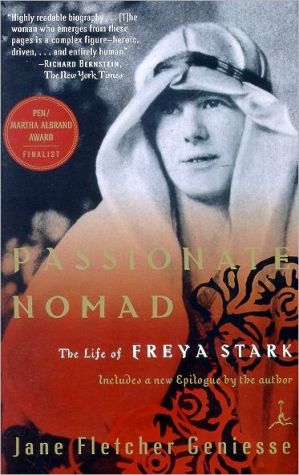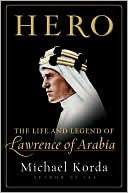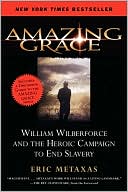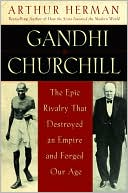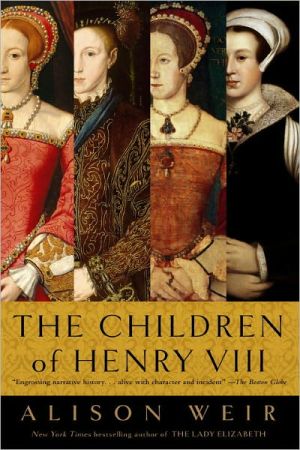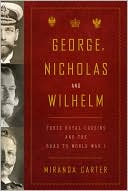Passionate Nomad: The Life of Freya Stark
Freya Stark—traveler, explorer, Arabist, and woman of letters—began the extraordinary adventures that would glamorize her—and would catapult her into public life for the next sixty years—in 1927. And with the publication of The Valley of the Assassins in 1934, her legend was launched.\ Leaving behind a miserable family life, Freya set out, at the age of thirty-four, to explore remote and dangerous regions of the Middle East. She was captured in 1927 by the French military police after...
Search in google:
Freya Stark—traveler, explorer, Arabist, and woman of letters—began the extraordinary adventures that would glamorize her—and would catapult her into public life for the next sixty years—in 1927. And with the publication of The Valley of the Assassins in 1934, her legend was launched.Leaving behind a miserable family life, Freya set out, at the age of thirty-four, to explore remote and dangerous regions of the Middle East. She was captured in 1927 by the French military police after penetrating their cordon around the rebellious Druze. She explored the mountainous territory of the mysterious Assassins of Persia, became the first woman to explore Luristan in western Iran, and followed ancient frankincense routes to locate a lost city. Admired by British officialdom, her knowledge of Middle Eastern languages and culture aided the military and diplomatic corps, for whom she conceived an effective propaganda network during WWII.But Stark’s indomitable spirit was forged by contradictions, her high-profile wanderings often masking deep insecurities. A child of privilege, she grew up in near poverty; she longed for love, but consistently focused on the wrong men. This is a brilliant and balanced biography—filled with sheikhs, diplomats, nomad warriors and chieftains, generals, would be lovers, and luminaries. Author Jane Geniesse digs beneath the mythology to uncover a complex, quixotic, and controversial woman. USA Today - Jim Lehrer Passionate Nomad is work of non-fiction that reads and sings with the drama and lilt of a fine novel. The story of Freya Stark is stunning, inspiring, sad, funny, unique, and moving. Jane Fletcher Geniesse tells it straight but with a care for delicious detail and a sympathy for the characters that makes this truly a special book.
The Beginning\ What I am, and why learning Arabic, is a mystery. If I say I do it for pleasure, there is a look of such incredulity that I begin to feel as self-conscious about it as if I were telling the most blatant lie," wrote Freya Stark to her mother as she shivered through the winter of 1927-28 in French-controlled Lebanon.\ Freya had arrived in the middle of December with a copy of Dante's Inferno, very little money, a revolver, and a fur coat. This last was to prove the most useful, for the weather was freezing. Immaculately polite and maintaining her good humor despite being wrapped from head to toe in woolens, she was just beginning to feel the throaty Arabic syllables slide more easily from her lips. She was thirty-four years old, stood scarcely five feet, one inch, in stocking feet, and was still extremely thin from a recent illness. Both the missionaries and the Arabs in the little mountain town where she had come to study agreed that she was perfectly charming. Few suspected that this appealing young person, so apparently unassuming, old-fashioned, even—they might have said—quaint, had a will of steel.\ In November 1927, Freya had embarked on a cargo ship for Beirut, leaving behind what she had long concluded was an unacceptable life. "It is so wonderful to be away, really away; a new land opening out every morning," she exulted as the SS Abbazia tossed through the rough Mediterranean. It did not matter that a cargo ship was all she could afford. She watched pigs, sugar, even once a Marconi telegraph machine being off-loaded between stops that grew more picturesque and unfamiliar with every passing day.\ "We are now among islands in the Ionian Sea. Is not the very name an enchantment? The sea is quiet, the twilight falling. I asked the name of an island on the right. 'Ithaca,' says the Captain, as if the name were mere geography."\ She had sat in her deck chair, the cold sirocco whipping the pages of her writing tablet, and felt that, at last, all the years of lonely study on her own, her determined efforts to make up for the schooling she had begged to have, which had been interrupted by the terrible Great War, no longer needed to be regretted so bitterly. It had been wrenching to slip out from under the attachments of family and embark on this journey. But if she had not gone when she did, she feared that she would never have got away, just as her sister Vera never did. Both had been prisoners to responsibilities they abhorred, but unlike Vera, Freya had refused to succumb. Instead, Freya had consoled herself by reading dazzling accounts of European explorers in the lands of the Arabs. One day, she had resolved, the world would hear of her "in the deserts of Arabia discovering buried cities."\ In 1920 Freya sensed a path quietly open. In April of that year everyone on the Italian Riviera was riveted by the events taking place at San Remo, only a few miles from Freya's home. The victorious Allies were gathering in that coastal town, and anyone who could tried to get a glimpse of the British prime minister, David Lloyd George, as he hurried back from and forth to meetings with Premier Georges Clemenceau of France. The purpose of the conference was to dispose of the sprawling territories of the defeated enemy, the Ottoman Empire. Because the United States refused to sign on to the League of Nations, the British and French were free to slice up the Middle East to their own imperial satisfaction. The Arab lands governed for over 467 years by the Grand Turk were to be "mandates" until such time as they "could stand on their own." Great Britain would supervise Mesopotamia, Transjordan, Palestine, and Egypt, while France would look after Greater Syria, including Lebanon. As for Persia, long the target of foreign influence, postwar turmoil would spark a coup against the old Qajar regime in 1921 and bring to prominence a Cossack Brigade commander, Reza Khan, who four years later would crown himself shah of a new Pahlavi dynasty.\ Freya's heart had soared at the thought of visiting these regions. Like everyone else who had been revolted and depressed by the seemingly hopeless bloody trench warfare in Europe, she had raptly followed the successes of Colonel T. E. Lawrence in spearheading an Arab revolt against the Turks. It had been thrilling to imagine this young intelligence officer racing through the desert on camel-back in the company of hawk-eyed Bedouin warriors. But Lawrence was only the latest hero in the history of brilliant Eastern adventures, and Freya plunged avidly into its literature.\ She began to consume all she could find about the early-nineteenth-century travelers. There was Johann Burckhardt, who disguised himself as a holy man and found the great Nabataean city of Petra before dying of plague in Cairo. Ulrich Seetzen located the lost ruins of Roman Jerash, mapped the Dead Sea, and was murdered by the imam of Yemen for being a spy for the czar. She read what she could get of the works of the great Orientalist Sir Richard Burton, famed for his search for the Nile and secret ventures into Mecca and Medina. Recently Freya had finished the vast and ponderous Travels in Arabia Deserta by Charles Montagu Doughty, who had died just one year before she herself sailed East. The lives of these explorers and the many others were filled with bold and daring deeds, and Freya read them with shining eyes. Since she was a child she had loved Kipling's tales of British imperial grandeur, and the story of Kim and the Red Lama had been her favorite book. That many of these Europeans had doubled as intelligence agents in the "great game" between their rival governments only intrigued her more. To Freya, the East seemed the most exotic place left on earth.
\ Jim LehrerPassionate Nomad is work of non-fiction that reads and sings with the drama and lilt of a fine novel. The story of Freya Stark is stunning, inspiring, sad, funny, unique, and moving. Jane Fletcher Geniesse tells it straight but with a care for delicious detail and a sympathy for the characters that makes this truly a special book. \ — USA Today\ \ \ \ \ Larry McMurtryPassionate Nomad is a thorough, vividly written account of one of the 20th Century most intrepid travelers.\ \ \ Peter BenchleyPassionate Nomad is a lickety-split read, fun, fast-pace and exciting...Only real life and a remarkable biographer...could have fashioned a character as fascinating as Freya Stark.\ \ \ \ \ Roderick MacLeishA completely absorbing biography of this century's greatest travel writer. As well as exploring the life, times and character of Freya Stark, Passionate Nomad brilliantly evokes the places she described and lived in...from Italy to the Middle East and beyond. \ — Wall Street Journal\ \ \ \ \ Colin ThubronShe has achieved, in the end, an admirable focus, at once critical and sympathetic. The portrait that emerges is a subtle and generous one. \ — NY Times Book Review\ \ \ \ \ Publishers WeeklyA celebrated explorer, mapmaker, ethnographer, amateur archeologist and prolific memoirist, British travel writer Freya Stark (1893--1993) crisscrossed the Middle East, breaking bread with villagers, sleeping in nomads' tents and undertaking colorful and daring adventures. Former New York Times reporter Geniesse credits Stark with fostering a sympathetic understanding of diverse peoples, yet also views Stark's nomadic life of nonstop wandering as an escape: she sees Stark as a successor to mid-Victorian romantics who perceived the exotic East as an alternative to the West's soulless commercialism. During WWII, Stark, fluent in several languages, helped Britain create a propaganda network stretching from Cairo to Baghdad, aimed at persuading Arabs to support the Allies or at least remain neutral. In retaliation, Mussolini imprisoned her aged mother. In 1943, the British government sent Stark, a longtime anti-Zionist, on a tour of the U.S. with the aim of deterring Washington from supporting the creation of Israel. Defending Stark against charges of anti-Semitism, Geniesse writes: "She foresaw that the creation of a Jewish homeland that displaced Arabs to fulfill the dream would spawn a legacy of violence lasting for years to come." With a psychologist's acumen, Geniesse provocatively portrays Stark as a charismatic maverick with a ruthless, competitive streak, a voraciously needy woman of fragile self-esteem. Photos. (Oct.) Copyright 1999 Cahners Business Information.\ \ \ \ \ KLIATTFreya Stark was born in 1893 (give or take) in England. Her early childhood was pleasant if uneventful. Her mother decided to leave her father; no one ever really knew why. Life for Freya, her sister and her mother then changed; it became harsher as they struggled financially and bounced from England to Italy. Along the way Freya became fascinated with the Arab language and culture. She started to learn Arabic, intending to go to the Middle East. Eventually she went to Lebanon. This trip removed her from an uncomfortable family situation and offered her something else to do besides get married, which she seemed unable to accomplish. It was the start of a long life of travel and adventure. Freya was a pioneer, traveling by herself or with local guides. She largely ignored local rules and customs as well as British regulations. She could usually talk her way into or out of most situations. She was the first woman to visit many places, find unknown sights and record cultures, and she wrote many travel books as well as essays. Well into her 80s she continued to travel and write. This is a fascinating look at a remarkable woman. Freya survived and thrived on guts, ingenuity and sheer luck. She could also be manipulative, cruel and insensitive. She became very anti-Zionist. Freya worked for British intelligence during WW II. This is a engaging (if a bit long) look at someone not well known but well worth knowing. Many photos are included. KLIATT Codes: SA—Recommended for senior high school students, advanced students, and adults. 1999, Random House, Modern Library, 410p. illus. map. bibliog. notes. index., $14.95. Ages 16 to adult. Reviewer: Robin S. Holab-Abelman; Vice Pres.,Lib. Relocation Scvs., Clancy-Cullen, , November 2001 (Vol. 35, No. 6)\ \ \ \ \ Library JournalExplorer, eccentric, agent provocateur, and travel writer, Freya Stark first ventured into the Middle Eastern societies under British mandate during the 1920s, which led to a lifelong love for the Arab people and their culture. The published accounts of her exploits and observations made this mysterious region intellectually and emotionally accessible to both European scholars and casual readers. When she died in 1993 at age 100, she left a remarkable legacy as perhaps the last of the great adventuresses. In this insightful biography, former New York Times reporter Geniesse looks behind the legend to uncover the factors that molded her personality. Raised in a dysfunctional family by a controlling mother, Stark fretted about her physical failings and lack of higher formal education. Her need for freedom and attention contributed to her risk-taking, while her fear of rejection led to impetuous and disastrous personal relationships. Although more analysis of her writings would have enhanced this work, it is still a notable effort. Recommended for public and academic libraries.--Rose M. Cichy, Osterhout Free Lib., Wilkes-Barre, PA Copyright 1999 Cahners Business Information.\ \ \ \ \ Kirkus ReviewsFormer New York Times reporter Geniesse offers an excellent, psychologically astute chronicle of the adventurous life of Dame Freya Stark (1893–1993), who became a female Lawrence of Arabia. Stark's exotic explorations in the Middle East brought her international renown. She had a miserable family life: her overbearing mother left Freya's father for an Italian count, who would later marry Freya's sister. Geniesse describes this suffocating domestic atmosphere in vivid detail, arguing that it helped trigger Stark's desire for a life of picturesque adventure. At age 13, Stark was disfigured in a horrible industrial accident. She began studying Arabic in London and in her mid-30s finally moved to Lebanon. Stark immediately fell in love with the Middle East, becoming "fascinated by the ancient hatreds among" the region's different tribes and religious sects. As an Arabist proud of her British heritage, Stark was in the difficult position of justifying British colonialism to the freedom-loving natives. During WWII, she worked for Britain's Ministry of Information in the role of propagandist. She collaborated with native groups in Egypt and Iraq, drumming up support for the Allied powers. Her early books on Yemen and the ancient cult of the Assassins won her plaudits from the public and the Royal Geographic Society. Despite her growing fame, her personal life remained unfulfilling. She fell in love with a British colonial officer who "brusquely rejected" her. After the war, she married a minor colonial official who, after their wedding, admitted he was a homosexual. Geniesse explores Stark's fascinating psychological makeup, her mixture of insecurity and total fearlessness. Throughout,the author skillfully details the people, places, and ideas that shaped her subject's life. Although Stark could be amazingly kind to Iraqi Bedouins or Druze tribesmen, she took the smallest slights to her dignity as personal affronts. A worthwhile, stylish, and thoroughly researched biography of a fascinatingly complex, often exasperating woman. (b&w photos, maps, not seen)\ \
